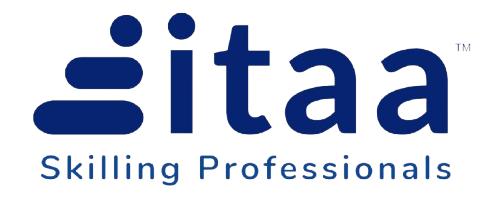In the dynamic realm of business administration, enterprises are incessantly pursuing avenues to enhance their financial operations. Amidst a plethora of resources, SAP Financial Accounting (FI) emerges as a formidable tool for overseeing financial transactions, generating reports, and conducting data analysis. Nonetheless, unlocking the full potential of SAP FI and ensuring optimal return on investment (ROI) necessitates a concerted focus on extensive training initiatives. This discourse delves into the fundamental principles and exemplary methodologies for optimizing ROI through SAP FI training.
At the core of sap financial accounting training lies the imperative of understanding its multifaceted functionalities. By equipping personnel with a comprehensive comprehension of SAP FI’s capabilities, organizations foster a proficient workforce capable of leveraging the software to its fullest extent. From primary navigation to intricate financial processes, a well-structured training regimen empowers individuals to navigate the intricacies of SAP FICO course with confidence and proficiency.
Moreover, embracing a hands-on approach within training programs cultivates practical skills essential for real-world application. By immersing participants in simulated scenarios and practical exercises, organizations bridge the gap between theoretical knowledge and practical implementation. This immersive learning experience not only enhances proficiency but also instills a deeper understanding of SAP FI’s practical implications within organizational contexts.
Furthermore, tailoring training programs to align with organizational objectives and industry-specific requirements is paramount. Customized training modules that cater to the unique needs and challenges of different departments and business sectors ensure relevance and applicability. By addressing specific pain points and focusing on relevant functionalities, organizations optimize the effectiveness of their SAP FI training initiatives, thereby maximizing ROI.
In essence, the journey towards maximizing ROI with sap financial accounting training encompasses a multifaceted approach that encompasses comprehensive understanding, practical application, and customization to organizational needs. By prioritizing these key concepts and best practices, organizations can harness the full potential of SAP FI, thereby driving efficiency, accuracy, and, ultimately, profitability in their financial operations.
Understanding the Importance of SAP FI Training
Before delving into the specifics of maximizing ROI with SAP FI training, it’s crucial to understand why investing in training is essential. SAP FI is a multifaceted system with a wide array of functionalities, including general ledger accounting, accounts payable and receivable, asset accounting, financial reporting, and more. With proper training, users may navigate the complexities of the system, leading to inefficiencies, errors, and missed opportunities for optimization.
Training ensures that employees have the necessary skills and knowledge to leverage SAP FI effectively, resulting in improved productivity, accuracy, and decision-making. Moreover, well-trained users can unlock advanced features and functionalities, enabling organizations to extract more excellent value from their SAP investment.
Critical Concepts in SAP FI Training
General Ledger Accounting: Understanding the structure and organization of the general ledger is fundamental to SAP FI. Training should cover charts of accounts setup, posting transactions, managing journal entries, and running financial reports.
Accounts Payable and Receivable: Effective management of accounts payable and receivable is critical for maintaining cash flow and optimizing working capital. Training should encompass invoice processing, vendor and customer master data management, payment processing, and reconciliation procedures.
Asset Accounting: Asset accounting involves managing fixed assets throughout their lifecycle. Training should cover asset master data maintenance, acquisition and disposal processes, depreciation methods, and asset valuation.
Financial Reporting: SAP FI offers robust reporting capabilities that allow organizations to generate various financial statements and analyses. Training should include report generation, customization, interpretation of financial data, and leveraging reporting tools such as SAP Business Intelligence (BI) for advanced analytics.
Integration with Other SAP Modules: SAP FI is closely integrated with other modules such as Controlling (CO), Materials Management (MM), and Sales and Distribution (SD). Training should explore how data flows between modules, ensuring consistency and accuracy in financial processes.
Best Practices for SAP FI Training
Tailored Training Programs: Every organization has unique business processes and requirements. Tailoring training programs to address specific needs ensures relevance and maximizes the effectiveness of training initiatives.
Hands-On Learning: Theory alone is not sufficient to master SAP FI. Hands-on training, including interactive simulations and real-world scenarios, allows users to apply theoretical knowledge in practical situations, reinforcing learning and retention.
Continuous Learning: SAP FI is a dynamic system with updates, patches, and new functionalities released regularly. Establishing a culture of continuous learning ensures that users stay abreast of changes and enhancements, maximizing the long-term ROI of SAP FICO course training.
Engagement and Support: Engaging users throughout the training process and providing ongoing support are essential for fostering adoption and proficiency. Encouraging feedback, addressing challenges promptly, and offering resources such as user guides and knowledge bases enhance the learning experience and facilitate skill development.
Certification and Recognition: Obtaining SAP FI certifications not only validates users’ expertise but also provides a tangible milestone for career advancement. Recognizing and rewarding employees who achieve certifications encourages participation and investment in training programs.
Conclusion –
At Itaa Education, we understand that maximizing Return on Investment (ROI) with SAP FI training goes beyond mere technical proficiency. It’s about empowering users to harness SAP FI’s full potential to drive organizational success. Our training programs emphasize key concepts and best practices, enabling participants to effectively utilize SAP FI to enhance financial processes, facilitate informed decision-making, and ultimately improve overall performance.
As the SAP FI system evolves, continuous investment in training and development becomes essential for organizations to sustain their ROI and maintain competitiveness in today’s dynamic business environment. Itaa Education is committed to providing comprehensive training solutions that not only equip participants with technical skills but also instill strategic insights to optimize SAP FI utilization.
Through our tailored training programs, participants gain a deep understanding of SAP FI functionalities and learn how to apply them strategically to address real-world business challenges. By investing in Itaa Education’s SAP FI training, organizations can ensure that their teams are proficient in leveraging SAP FI to their fullest extent, resulting in tangible and measurable benefits for the business.
Itaa Education offers more than just SAP FI training; we provide a pathway for organizations to unlock the true potential of their SAP FI investment. With our focused approach to practical application and strategic thinking, we enable organizations to maximize their ROI and maintain a competitive edge in today’s rapidly changing business landscape.









